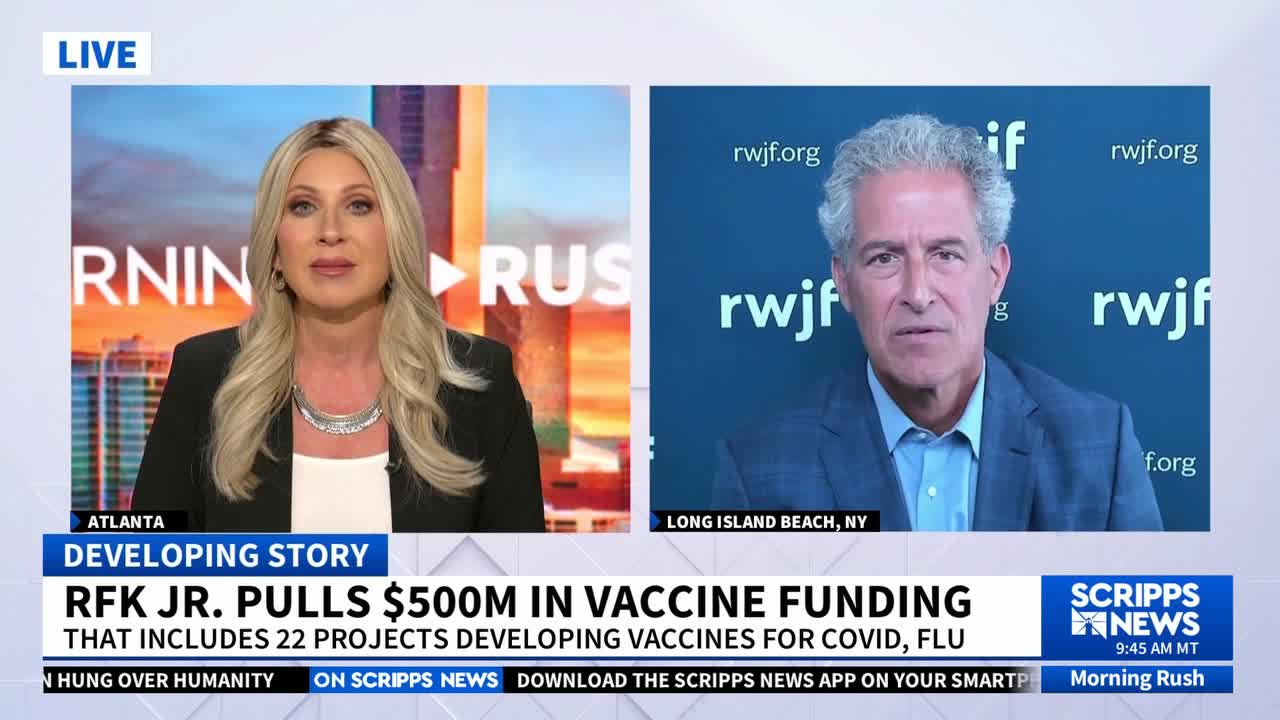Health Secretary Robert F. Kennedy Jr. announced Tuesday that the Department of Health and Human Services will cancel $500 million worth of contracts for vaccine development projects that are using mRNA technology.
Experts have said the decision is "unfathomable."
This particular type of vaccine, short for "messenger ribonucleic acid," is credited with slowing the 2020 coronavirus pandemic and has been described as "miraculous" by some experts in the field of medicine.
According to Dr. Richard Besser, former director of the Centers for Disease Control and Prevention and current president of the Robert Wood Johnson Foundation, the technology was developed over the last two decades — long before the COVID-19 pandemic.
Penn Medicine is home to the technology behind the development of this vaccine class. It says this science Now the path has "the potential to eradicate countless other diseases, even cancer." Its scientists are also researching the ways mRNA could deliver replacement genes or repair defective genes to treat diseases like cystic fibrosis and sickle cell anemia.
RELATED STORY | RFK Jr. pulls $500 million in funding for vaccine development
The mRNA vaccines work by making small pieces of protein after being injected into the muscle. Those protein pieces relate to the infection you're trying to prevent, which ultimately create antibodies to fight the infection, Besser explained in simple terms.
"The beauty of this is that you can make a new vaccine against a new infectious agent incredibly quickly," he said, whereas traditional vaccine development can take years.
"During a public health crisis, time is of the utmost urgency, and so anything you can do to shave off the time it takes to make a new vaccine is worth it," said Besser, who was leading the CDC during the start of the swine flu pandemic in 2009.
The projects being cut involve the development of vaccines to prevent flu, COVID-19 and H5N1 infections, and were being led by some of the nation’s leading pharmaceutical companies like Pfizer and Moderna.
Kennedy, who has repeatedly shown doubt over vaccines, claimed the funding would be shifted toward "safer, broader vaccine platforms that remain effective even as viruses mutate."
"The idea that the secretary is taking away a tool that is almost miraculous is unfathomable," said Besser. "I have absolutely no idea why he would take this kind of step for technology that was shown during COVID to be effective and incredibly safe."
He added that there are concerns within the science and public health community about the cutting of funding for ongoing studies related to the bird flu response.
"By taking this away, it endangers the lives of everyone here. Not just here, the U.S. has done a lot to supply vaccines around the world and so many people will suffer because of this decision."
"[Kennedy] is in a position with incredible power to really rattle people's faith in something that was always viewed as one of the greatest advancements in public health and medical technology, and that's vaccines."




